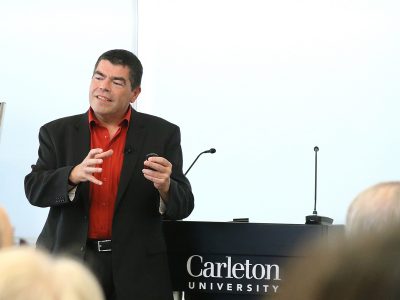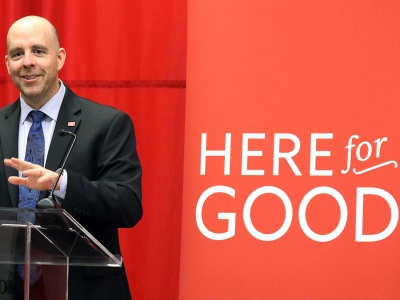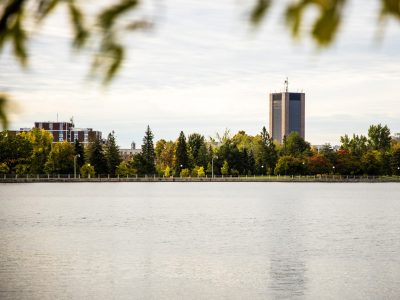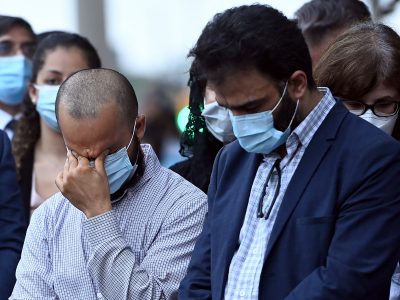By Ellen Tsaprailis
Photos by National Capital Commission (NCC)
From observing the inner sanctums of the military and RCMP or making an impact on local communities to conducting archaeological digs continents away, there are myriad practical ways Carleton University students in the Faculty of Arts and Social Sciences (FASS) apply their course knowledge and advance career options.
Over the last winter term, for instance, 55 Carleton students enrolled in the Public History from Memory to Museums course worked on an anniversary project with the National Capital Commission (NCC).
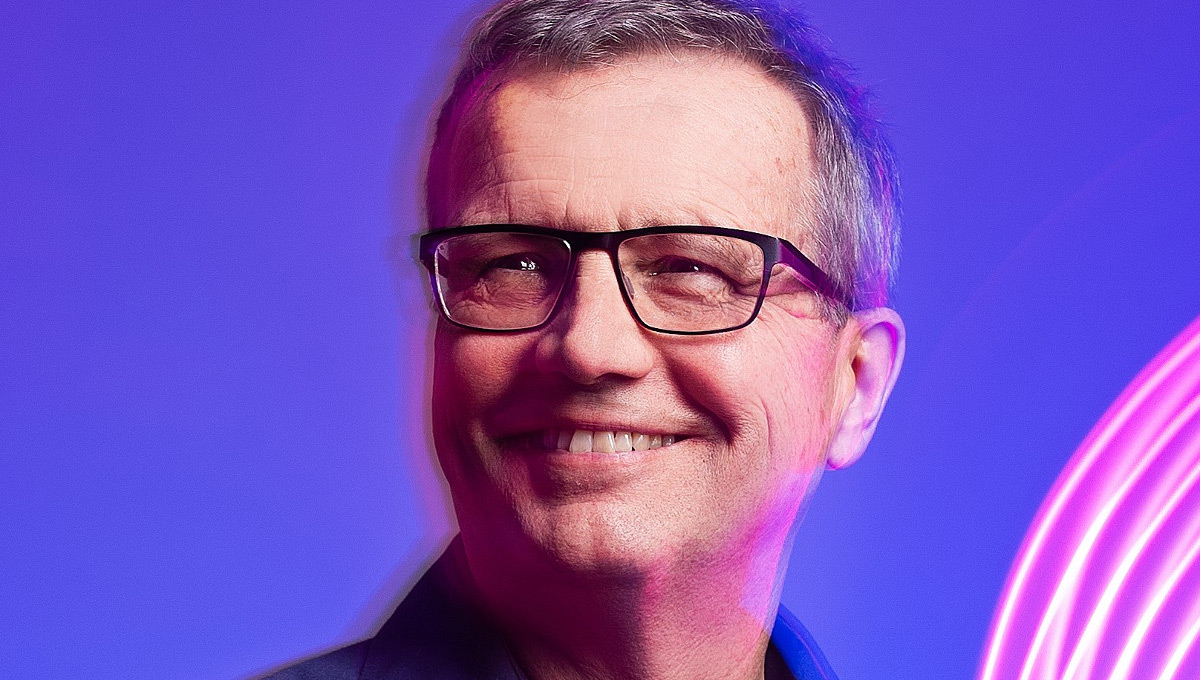
Carleton University History Prof. David Dean (Photo: Department of History)
History Prof. David Dean at the Carleton Centre for Public History received $15,000 for 11 new kiosk installations as part of the Capital History Kiosks project. Students worked in 11 teams to research stories, present them to the NCC and work with a designer to install the winning ideas.
“They have created original exhibits along Sussex Drive, online exhibits and a walking tour and (were) given full credit for their work on both the NCC and the Capital History websites,” said Dean.
“The (students received) collaborative experience through their teamwork, awareness of working for and with various stakeholders (NCC, the City of Ottawa, the design firm ChapterOne Studio), and getting support from museum professionals and local historians.”
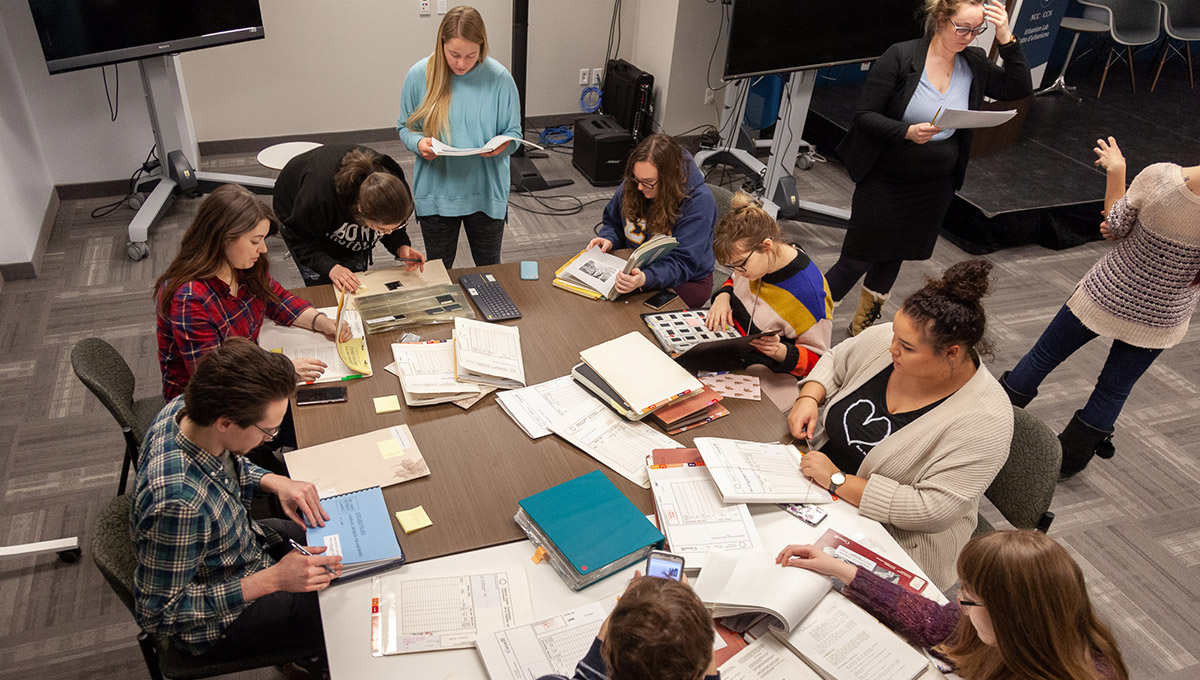
Engaging in Local History
Student Keira Wilson chose to work on a traffic control box with an enfolding image and text reflecting Ottawa’s history.
“This type of course deals with the discipline of public history, which means history that interacts with the public,” said Wilson, who has completed her second year.
“In the course, we explore museums and how exhibits are set up for the public, as well as documentaries, fiction television and films that deal with historic events.”
Wilson loved the experience of working on local history and discovering stories about downtown Ottawa. “Usually people look to places like Rome, Great Britain or Russia for historic events, but this course allowed us to make connections to a history closer to home.”
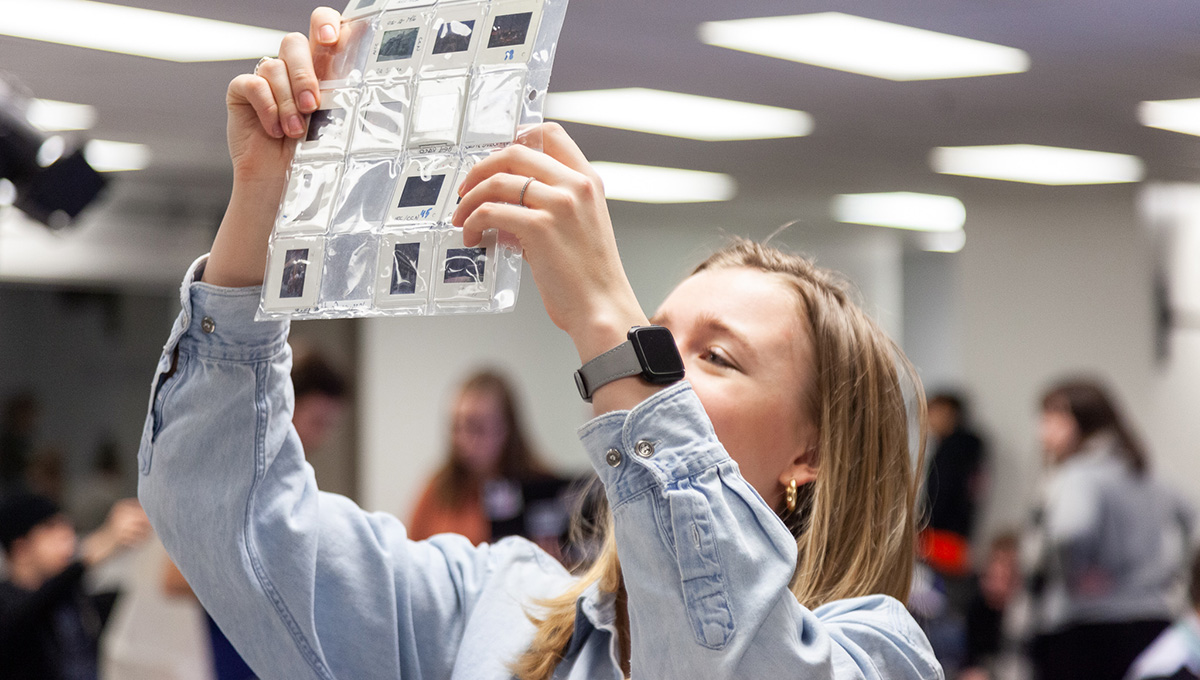
Learning as a Lifelong Activity
Two-thirds of FASS undergraduate students have experiential learning opportunities available to them, mainly through applied research projects, labs and field experience.
“The range of experiential learning opportunities in the Faculty of Arts and Social Sciences is limited only by our students’ imagination,” says Dean Pauline Rankin.
“Encouraging students to create, collaborate and contribute in settings beyond the classroom reinforces how their academic knowledge has countless applications in the everyday world and inspires them to see learning as a lifelong activity.”
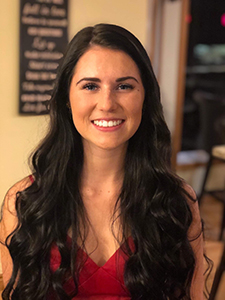
Siobhan Green
Majoring in psychology with a concentration in forensics, Siobhan Green completed a placement within the RCMP’s contract and Indigenous policing directorate in their operational research unit.
Two days a week during her entire first semester last year, Green worked on a variety of projects ranging from data entry to writing reports and running descriptive and frequency statistics.
“I couldn’t have asked for a better experience,” said Green. “I learned so much more than I could have ever thought possible. It was great working with people who have all been in my place, as everyone’s goal was to help you get where you wanted to be—whether that be grad school or other departments in the RCMP.
“It was also a great way to gain real-world experience, as university programs often don’t provide you with that opportunity.”
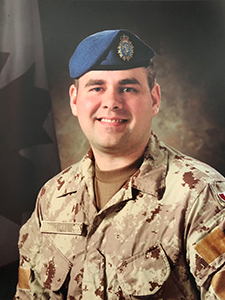
William Van Veen
William Van Veen completed his placement for the same psychology course with the Canadian Armed Forces (CAF). Securing a spot in their personnel development office, Van Veen was exposed to military counselling services for CAF members within the national capital region and international postings.
Watching CAF Personnel Selection (PSel) officers provide vocational counselling on career and educational possibilities using industrial/organizational psychology really crystalized Van Veen’s interest in working in this area of the military.
“I sat in on over 20 career counselling sessions,” said Van Veen.
“I found that I truly loved the work I was doing. Thanks to the assistance of my supervisors, I learned exactly what I needed to do in order to obtain employment as a PSel officer.”
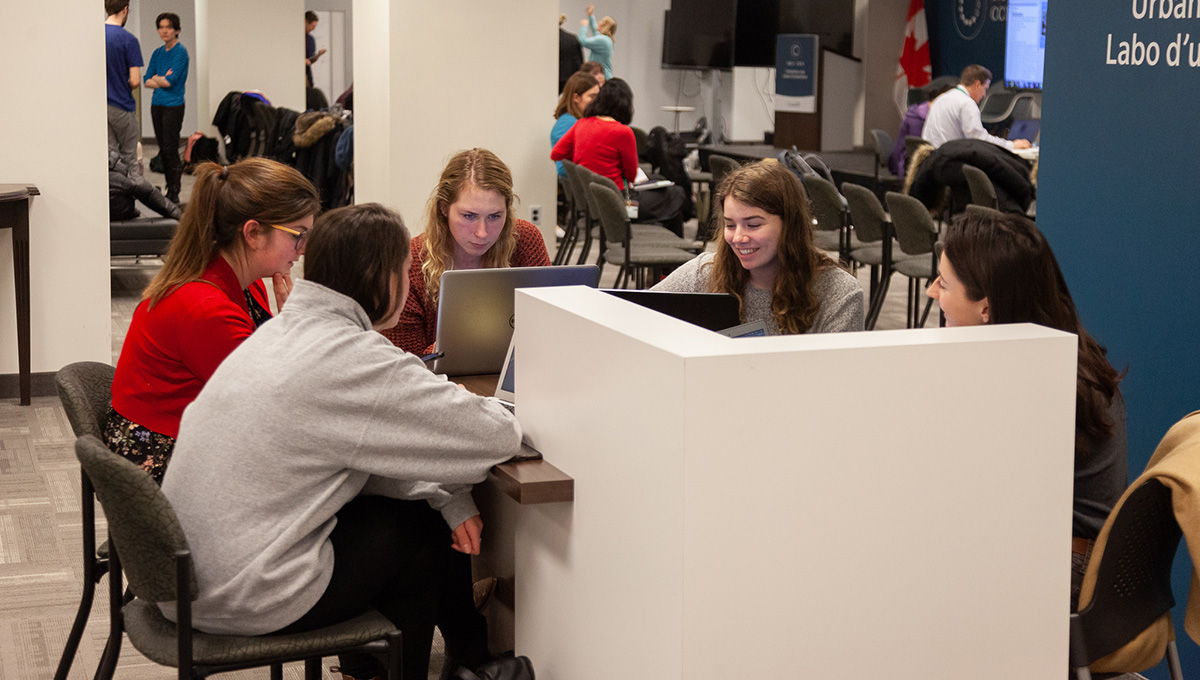
International Arts and Social Sciences Experiences
Majoring in cognitive science with a specialization in biological foundations and a minor in archaeology, Marilyn Irwin went on her first archaeological dig in Belize last spring to work with Elon University Anthropology Prof. Rissa Trachman.
Irwin joined first-time excavators from Canada, the United Kingdom and the United States to learn mapping, excavation techniques and artifact analysis, as well as to study ancient Mayan culture, Belizean culture and tropical forest ecology.
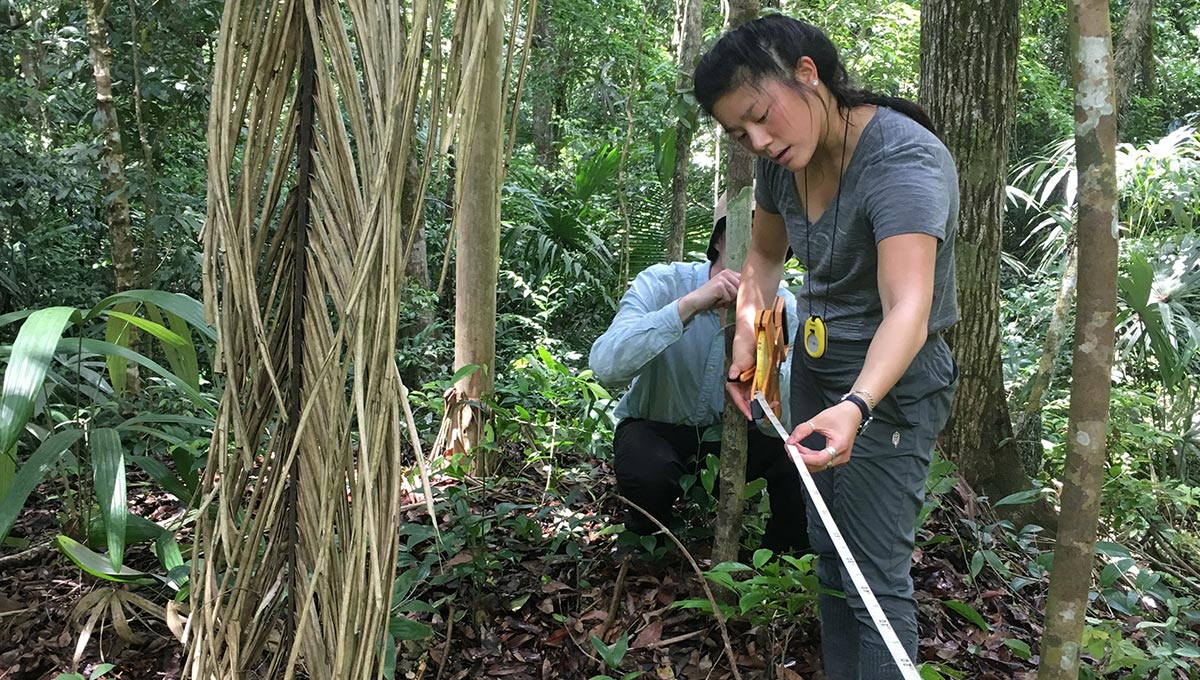
Marilyn Irwin (Photo: Dos Hombres Archaeological Project, the Programme for Belize Archaeological Project and Dr. Rissa Trachman)
“They were able to teach you everything from square one and (details about) what we were excavating,” said Irwin.
Deep in the jungle, the camp is a protected area with minimal amenities.
“I liked the fact that it was a camp,” she said of choosing this particular archaeological dig to complete her field course work.
“I enjoy the outdoors and camping.”
Irwin followed it up with another dig in Asprovalta, Greece.
“This project is run through the University of Montreal,” said Irwin who is interested in learning a Canadian approach to archaeology and getting a different philosophy than what she experienced in Belize to expand her repertoire and experience.
Fourth-year Greek and Roman Studies student, Ally Chapman, headed to Rome and Naples in the spring of 2017 for a studies abroad course. Students participating were expected to attend onsite lectures and complete academic assignments.
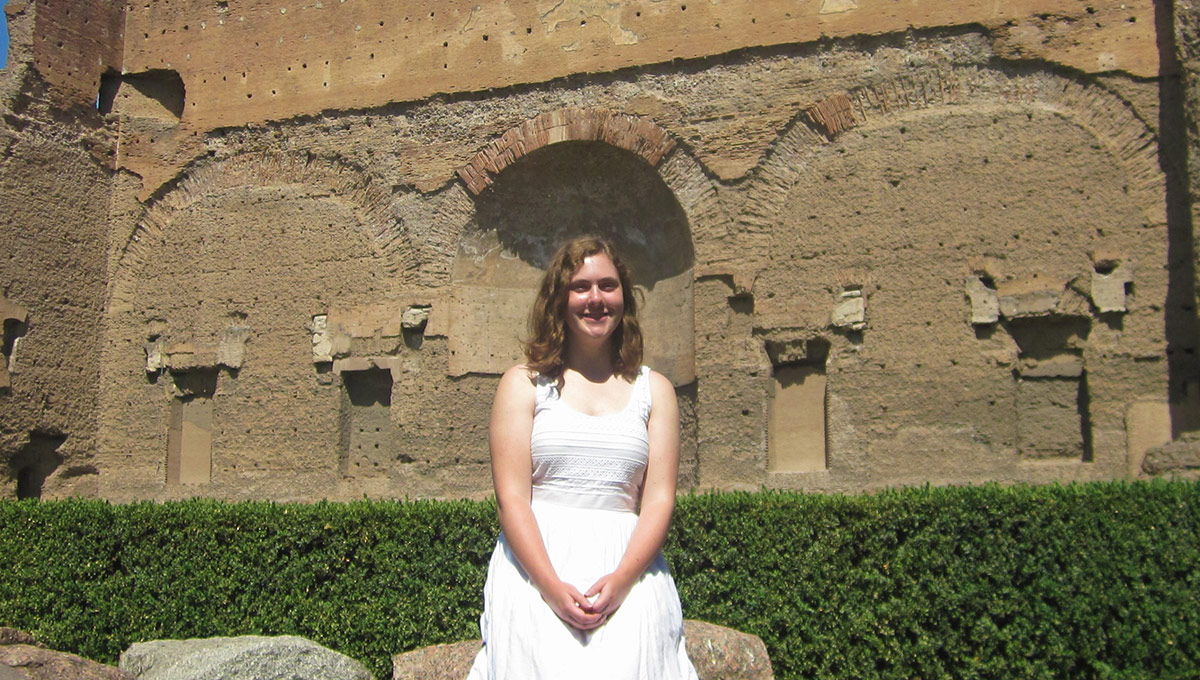
Ally Chapman at the Baths of Caracalla in Rome (Photo provided by Ally Chapman)
“As we toured the city every day, we would stop at significant locations so that the professors could provide us with the historical background of the monument that we were looking at,” said Chapman.
“It was like having our own personal tour guides for the entirety of the trip.”
Expected to conduct their own presentation on a monument or artifact, Chapman chose a villa in the city of Pompeii with a preserved fresco painting. “It was very exciting to have the opportunity to discuss an ancient work of art while standing right in front of it.
“After spending half of my degree learning about these monuments from textbooks and lecture slides, this experience felt more personal as I was given the opportunity to explore the ancient world at my own pace. The knowledge that I gained from this trip has stayed with me through the years of my degree and has had a major impact on my understanding of related course material.”
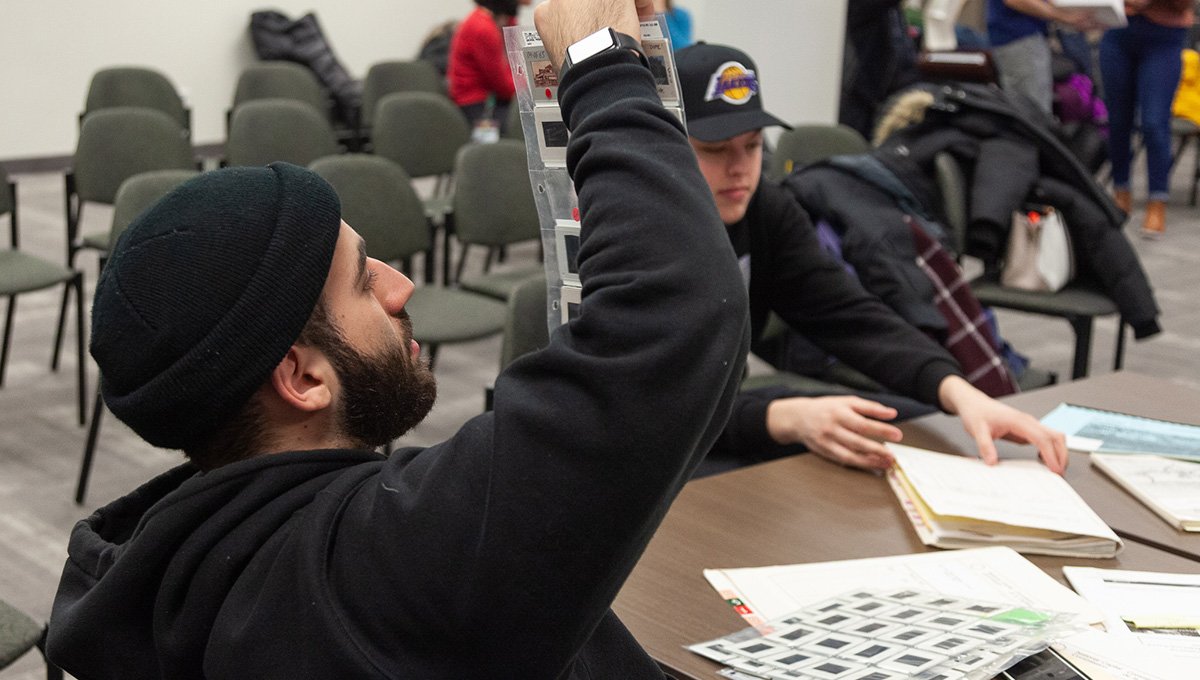
Friday, December 20, 2019 in Experiential Learning, Faculty of Arts and Social Sciences, Research, Student Experience
Share: Twitter, Facebook
